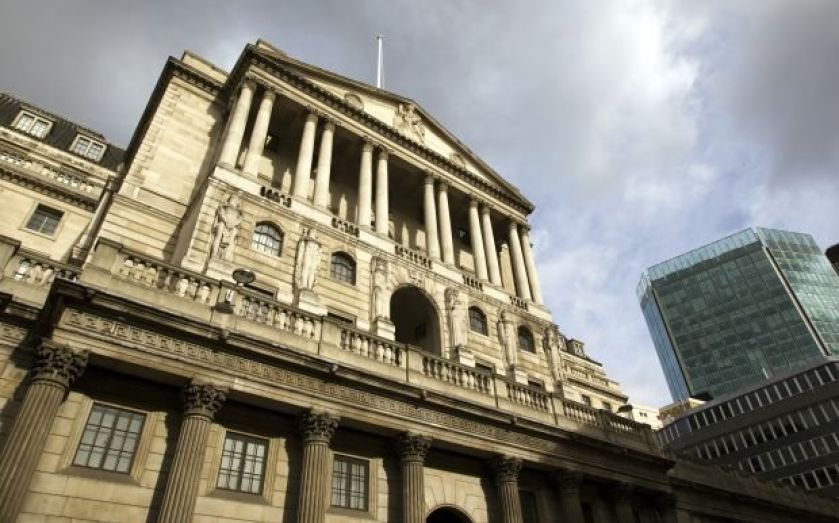Bank of England minutes: Pound drops as MPC returns to agreement on interest rate rises

The pound fell against both the euro and the dollar today, after Bank of England policymakers returned to agreement on the importance of keeping interest rates low.
Minutes published this morning showed the Bank's monetary policy committee (MPC), which sets interest rates, voted unanimously against raising rates from their historic low of 0.5 per cent. Rates are now widely expected to stay low until 2016.
Sterling dipped 0.3 per cent against the dollar on the news, and 0.4 per cent against the euro.
Over recent months, the committee has been divided, after economists Martin Weale and Ian McCafferty voted in favour of a rise in interest rates, which have remained at 0.5 per cent for 70 months.
But following a sharp fall in inflation to 0.5 per cent last month, thought to be largely down to falling oil prices, the two policymakers decided against raising rates, although they suggested the fall was "probably driven largely by temporary factors and was unlikely materially to affect the behaviour of households and businesses in such a way that it became self-perpetuating".
Nevertheless they noted the risk that low inflation might persist for longer than the temporary factors implied and concluded that this risk would be increased by an increase in bank rate at the current conjecture.
The move follows forecasts suggesting a rise in interest rates is unlikely until next year. On Sunday the EY Item Club, which uses the Treasury's forecasting model, said the MPC should "err on the side of caution and keep interest rates on hold until the first quarter of 2016".
MPC members had been awaiting higher wage rises, but the sliding price of oil appears to have outweighed wage growth, which at 0.8 per cent only recently began to outstrip inflation.
Peter Hemington, head of corporate finance at BDO, said the MPC but "continue to hold its nerve".
We still face headwinds from a depressed Europe and the fear of swingeing public spending cuts post May. Even if we see strong growth in wages during 2015, the Bank should give the economy the benefit of the doubt and hold off on interest rate rises until it becomes clear that they are absolutely necessary.